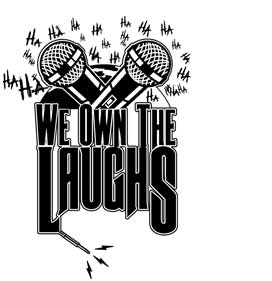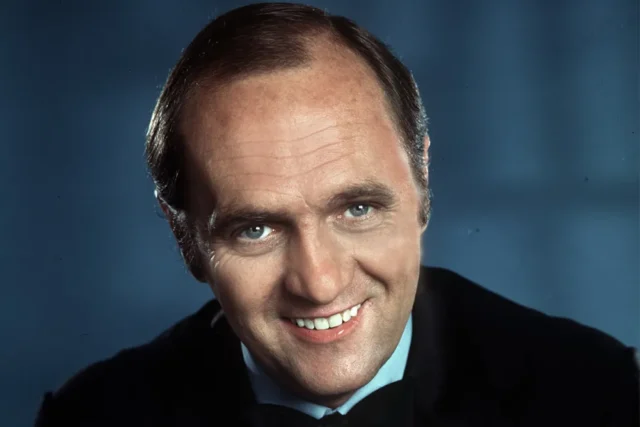Bob Newhart was still living with his parents when he was 30. He was a balding, slouch-eyed former accountant who talked in a calculated, halting stammer. He was no one’s idea of a superstar.
Yet, within a year, his understated comedy routines that emphasized the absurdities of ordinary life made him a national sensation. Mr. Newhart, who died July 18 at 94, became the first comedian with a No. 1 record and the star of two long-running sitcoms. Regarded as one of the most influential figures in modern comedy, he helped shape the humor of Bill Cosby and Jerry Seinfeld, among others.
His debut album, “The Button-Down Mind of Bob Newhart,” soared past the pop and rock recordings of Frank Sinatra and Elvis Presley to stand at No. 1 on the Billboard charts for 14 weeks in 1960. It was the first comedy album to sell more than 1 million copies, and Mr. Newhart remains the only comedian to win Grammy Awards for best new artist and album of the year.
He didn’t emerge from the traditional proving ground of nightclubs but relied on recordings to propel his popularity. In fact, the first time he performed in a nightclub was when he recorded “The Button-Down Mind,” which went on to sell more than 100 million copies.
Mr. Newhart’s best-selling records helped him become one of the first comedians to develop a following on college campuses. With his suit and tie and his subdued manner, he looked like a junior executive who wandered across the hall from a business meeting to describe a world wobbling off its axis.
“Comedy is a way to bring logic to an illogical situation, of which there are many in everyday life,” Mr. Newhart wrote in a 2006 memoir, “I Shouldn’t Even Be Doing This!” “I’ve always likened what I do to the man who is convinced that he is the last sane man on Earth.”
His deadpan, profanity-free “clean” approach stood out from a growing trend of confrontational, political and overcaffeinated comedians of the time, including Lenny Bruce, Mort Sahl and Don Rickles — who became Mr. Newhart’s closest friend.
Mr. Newhart’s staid “button-down” style was largely dependent on his uninflected delivery, carefully placed pauses and stutters. He often introduced his sketches as observations about the business world, workplace conventions and the frustrations of quotidian life.
“The comedy was intelligent,” comedian Tommy Smothers told the Chicago Tribune in 2002, the year Mr. Newhart was awarded the Mark Twain Prize for American Humor at the Kennedy Center. “And Bob had that wonderful sense of space — that timing that was so essential to the comedy. He never really told hard jokes. It was attitude and inflection — and the space when you picked those words up. That was his great gift.”
By looking at familiar situations from fresh angles, Mr. Newhart uncovered an original brand of humor: He portrayed a driving instructor with a clueless student; the beleaguered commander of a nuclear submarine, the USS Codfish, with a mutinous crew; and a bus-driving teacher who schools his students on the proper way to leave passengers at the curb: “What you want to do is just kind of gradually ease out. You’re kind of always holding out the hope they can catch up with the bus, you know what I mean? … Did you see how he slammed the door right in her face that time? That’s called your perfect pullout.”
One of Mr. Newhart’s major contributions to comedy was to deliver essentially a “straight-man” routine, with the audience hearing only one side of an increasingly desperate conversation, often in the form of a phone call.
“Listen, Abe,” he imagined a press agent telling President Abraham Lincoln, “what’s the problem? You’re thinking of shaving it off? Uh, Abe, don’t you see, that’s part of the image?”
In one of his most popular skits, built around the idea of introducing new products that don’t have an obvious market niche, Mr. Newhart imagined a telephone call to the London home office of the East India Company from Sir Walter Raleigh, reporting on a new purchase in the American colonies.
After years as a stand-up star and frequent appearances on TV variety shows, Mr. Newhart found that his unassuming stage persona as a slightly bewildered everyman translated comfortably to the television situation comedy.
“The Bob Newhart Show,” which ran on CBS from 1972 to 1978, was part of a formidable CBS Saturday comedy lineup, along with “The Mary Tyler Moore Show,” “All in the Family” and “The Carol Burnett Show.” Mr. Newhart played a Chicago psychologist coping with the comic foibles of his clients.
His wife on the show was played by throaty-voiced actress Suzanne Pleshette. Mr. Newhart insisted that the couple be childless.
“I didn’t want to do a certain kind of show, which was the dumb father who keeps getting in these pickles and these precocious children and mother get him out of it,” he told the Newark Star-Ledger in 2001. “That was one of the few conditions that I insisted on, and I think it was one of the factors that made the show work.”
On “Newhart,” which ran on CBS from 1982 to 1990, he portrayed a guidebook-writer-turned-Vermont-innkeeper dealing with a cast of eccentric locals. The final episode became one of the most memorable in television history.





